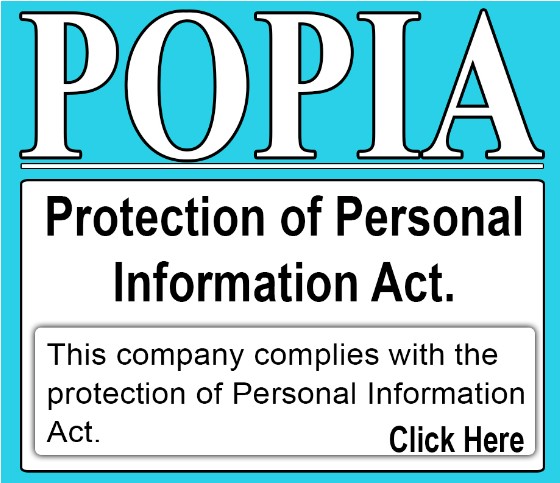BRITS POS – BRITS - South African sectional title owners who fall behind on levy payments risk losing not only their homes, but also their cars and other assets, as bodies corporate increasingly turn to court orders to recover mounting arrears.
VDM Incorporated attorney, Johlene Wasserman, who specialises in sectional title law, warned South Africans that falling behind on levy payments could lead to serious legal consequences.
This includes the forfeiture of movable assets such as vehicles, furniture, electronics, and immovables like their sectional title units.
Wasserman explained that many community schemes are on the brink of collapse due to levy defaults. A growing number of once-thriving schemes are now becoming shabby.
“Water and electricity supplies are being throttled, and they’re facing the very real threat of sewage and garbage disposal services being stopped altogether,” she said.
Unpaid levies are crippling community schemes throughout South Africa. In its 2023/24 Annual Report, the Community Schemes Ombud Service (CSOS) recorded 15,587 dispute applications.
“Of these, 9,742 were financial issues, dominated by levy arrears and interest disputes – about 62.5% of all cases,” Wasserman said.
“CSOS itself attributes the surge to the tough economic climate and high unemployment. But when owners stop paying for whatever reason, schemes start failing.”
Wasserman explained that if someone owes money, such as levies, and a court judgment has been granted against them, creditors can file a Section 66 application.
“They may not, however, disconnect water, gas or electricity, restrict access to the complex, or publicly shame or defame owners in arrears,” she said.
“Taking the law into your own hands can backfire. Unlawful disconnections or access restrictions can lead to spoliation claims and serious legal consequences.”
*The Section 66 application
A Section 66 application, Wasserman explained, refers to a legal process under section 66 of the Magistrates’ Courts Act. It allows a judgment creditor, such as a body corporate or homeowners association, to apply for the attachment and sale of a debtor’s movable property to satisfy a debt.
“In practical terms, section 66 allows for the seizure of movable assets such as furniture, vehicles, and electronics. These assets may then be sold on public auction, and the proceeds used to settle the outstanding debt,” Wasserman explained.
Key requirements for a Section 66 application include a valid court judgment confirming the debt, proof that the debtor has failed to pay despite demands, and payment options.
The application must be made to the clerk of the court or magistrate, and the sheriff has to execute the attachment and sale.
Wasserman, who previously worked for both the CSOS and the Property Practitioners’ Regulatory Authority, called a recent ruling by the South Gauteng High Court “a landmark judgement”.
“The court upheld the Bondi Body Corporate’s right to sell a Roodepoort property over unpaid levies totalling R50,974.31,” she said.
“Despite the unit’s R1.4 million market value and a mortgage bond exceeding R632,000, the court confirmed that levy arrears are enforceable through sale in execution of a unit.”
This applies even where the property is bonded, provided all legal requirements are met. Although the bondholder remains a secured creditor, the levy debts must also be settled before transfer.
“Similarly, in Cilaos Body Corporate v Tsengiwe, the High Court ruled that bodies corporate may disconnect electricity for non-payment – provided they comply with statutory limits,” she said.
“The owner in that case owed nearly R100,000 in levies and utilities, and the court affirmed that legal fees and enforcement costs were recoverable under Regulation 25(4) of the Sectional Titles Schemes Management Act.”
Homeowners can’t run away from their financial obligations
“When you buy into a community scheme, whether it’s a sectional title development, homeowners association, or retirement village, you cannot run away from your financial obligations,” Wasserman warned.
“We all have to pay our levies – and you don’t have to agree to it in writing. You become a member of the community scheme the minute it’s transferred into your name.”
Wasserman stressed that trustees should act within 60 days of arrears to avoid service disruptions and financial instability.
“Bodies corporate have a fiduciary duty to protect the scheme. Delays in action can lead to special levies, legal battles, and even service cut-offs, so the sooner you act, the better,” she warned.
Even if a unit is rented out or the owner disagrees with management decisions, levies must still be paid – there are no exceptions. Owners cannot withhold payment as a form of protest unless they have a court order.
However, under section 39(1)(f) of the CSOS Act, the body corporate can apply for a CSOS order to redirect rental payments from the tenant until the arrears are cleared.
Bodies corporate may consider structured payment plans or engage with the owner to understand their situation. “But leniency must be balanced with fairness to other owners and the scheme’s financial health,” she added.
Any reasonable legal fees incurred during the collection process can be claimed back from the defaulting owner.
̴ Kirsten Minnaar









